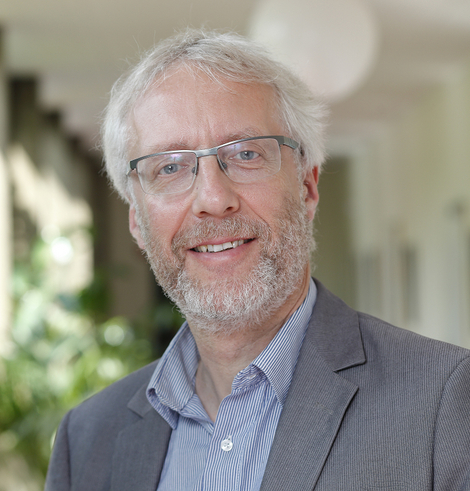According to the experts, there is sufficient scientific evidence that psychosocial factors worsen the long-term course of existing chronic heart failure. Large-scale prospective population studies and numerous clinical studies have convincingly shown that depression and social isolation in particular must be taken into account in heart failure therapy.
Mental aspects should also be taken into account when assessing the risk of heart failure: "Psychosocial factors alone do not cause heart failure, but they are an important aspect when a doctor assesses a patient at risk and should be treated in the same way as high blood pressure and obesity, for example, in order to reduce the risk of heart failure," says Professor Karl-Heinz Ladwig, scientist at the German Centre for Cardiovascular Research (DZHK) at the Technical University of Munich (TUM) and one of the authors of the position paper.
Mental stress intensifies unsuccessful physical equalisation processes
How depression and the like exacerbate cardiac insufficiency can be traced back to biological processes. When the heart weakens, the body tries to compensate in order to maintain the supply of blood and oxygen. It activates the so-called sympatho-adrenergic system and the renin-angiotensin-aldosterone system (RAAS), also known as neurohumoral activation. It leads to increased blood pressure and increases the heart rate. Although this increases cardiac output in the short term, it damages the heart muscle in the long term. Pathological remodelling processes occur, causing the cardiac insufficiency to progress further. "This unsuccessful compensation of the body is reinforced by psychosocial factors," says Ladwig, summarising the results of the numerous studies evaluated for the position paper.
Strengthening self-care to break the vicious circle
If heart failure therapy is to be successful, patients must not just passively endure their everyday lives, but must actively participate. However, this important self-care often fails. This is because the usually severe course of heart failure causes patients to become desperate and hopeless. They then fail to take proper care of themselves and their condition, for example by not taking their medication regularly or ignoring warning signs such as weight gain due to water retention. As a result, the disease worsens more quickly and causes patients to become even more despondent. To break this vicious circle, Ladwig and his colleagues conclude that new psychological approaches are needed to revitalise self-care. For example, the technique of "motivational interviewing", which encourages patients to take an active role. "The technique is very interesting," says Ladwig. "You overcome a number of hurdles together and the patient thinks for themselves about how they could realise a treatment goal." The experts also recommend telemedical treatment concepts as a complement to face-to-face encounters between doctor and patient.
Referral to a specialist is best for mental health problems
The analysed studies also showed that traditional psychotherapeutic treatment concepts tend not to work for seriously ill patients with a steadily worsening disease such as heart failure. On the other hand, physical exercise programmes combined with cognitive behavioural therapy are successful. There is too little data on depth psychology to make reliable statements. Psychotropic drugs, regardless of the substance class, are also only moderately successful. This is very different for patients with coronary heart disease who are under emotional stress, for example, where these psychotropic drugs work, but patients with heart failure need supportive counselling in medical consultations. "Many cardiologists recognise the severe psychological problems of their patients and should then refer them to a psychiatrist or psychosomatic specialist," says Ladwig.
Psychological support unanimously required for ventricular assist devices
If heart failure is at an advanced stage, patients often need external cardiac support systems or implantable cardiac defibrillators (ICDs). The experts agree that more psychological support is urgently needed to reconcile patients with these devices and to cushion the very stressful situation. In addition to the very expensive technology, it is imperative to invest in psychological support.
Offering palliative care at an early stage
Building on numerous pilot projects, the scientists are in favour of offering inpatient or outpatient palliative care at an early stage. This is because the unpredictable development of the disease, which can deteriorate rapidly, is frightening for patients and their relatives. It is not just about providing immediate support during the dying process, but also about discussing openly and sensitively what happens next if no further sensible treatment is possible. Patients, their caring relatives and the medical and nursing staff treating them should be involved in the decision-making process (including end-of-life decisions). In order to implement this concept, training curricula would have to be developed for all those involved.
Original publication: Mental Health-Related Risk Factors and Interventions in Patients with Heart Failure. A Position Paper endorsed by the European Association of Preventive Cardiology (EAPC) (Ladwig et al., 2022)
Scientific contact: Professor Karl-Heinz Ladwig (karl-heinz-ladwig(at)tum.de), Technical University of Munich, Klinikum rechts der Isar, Clinic for Psychosomatic Medicine and Psychotherapy
Press contact: Christine Vollgraf (presse(at)dzhk.de), Press and Public Relations, German Centre for Cardiovascular Research (DZHK), Phone.: 030 3465 529 02


